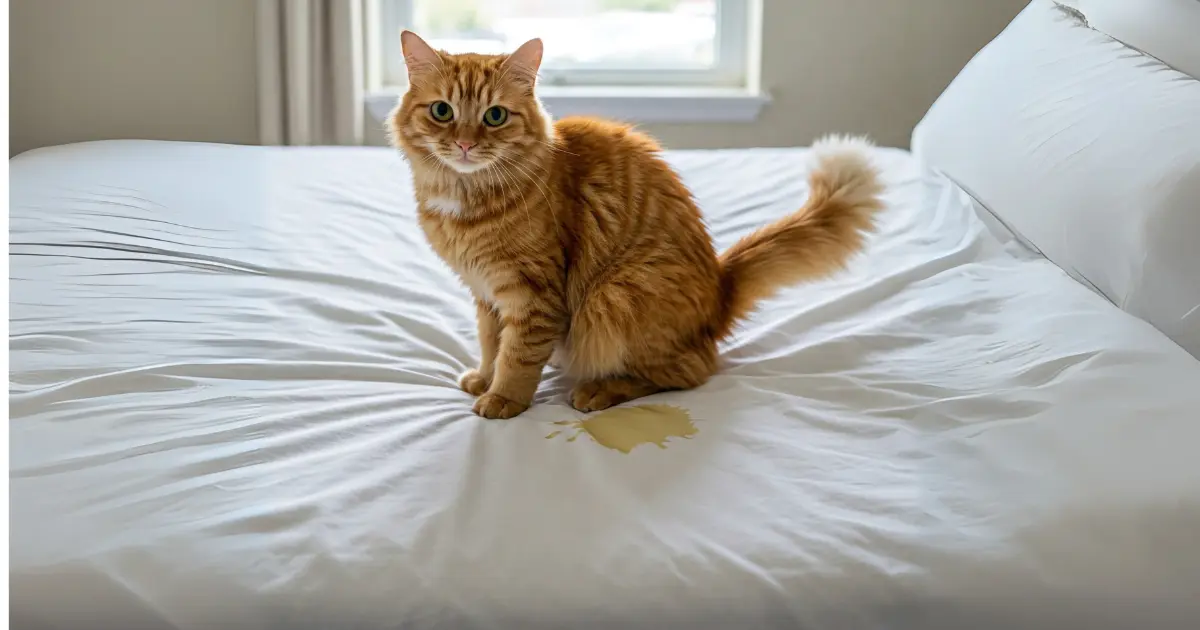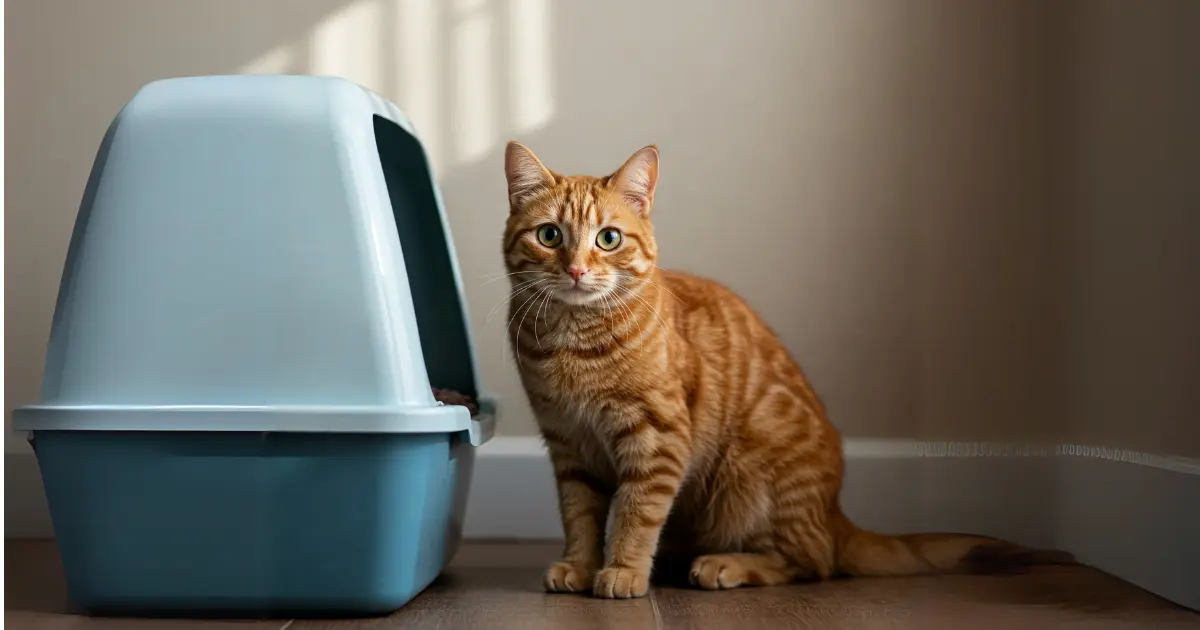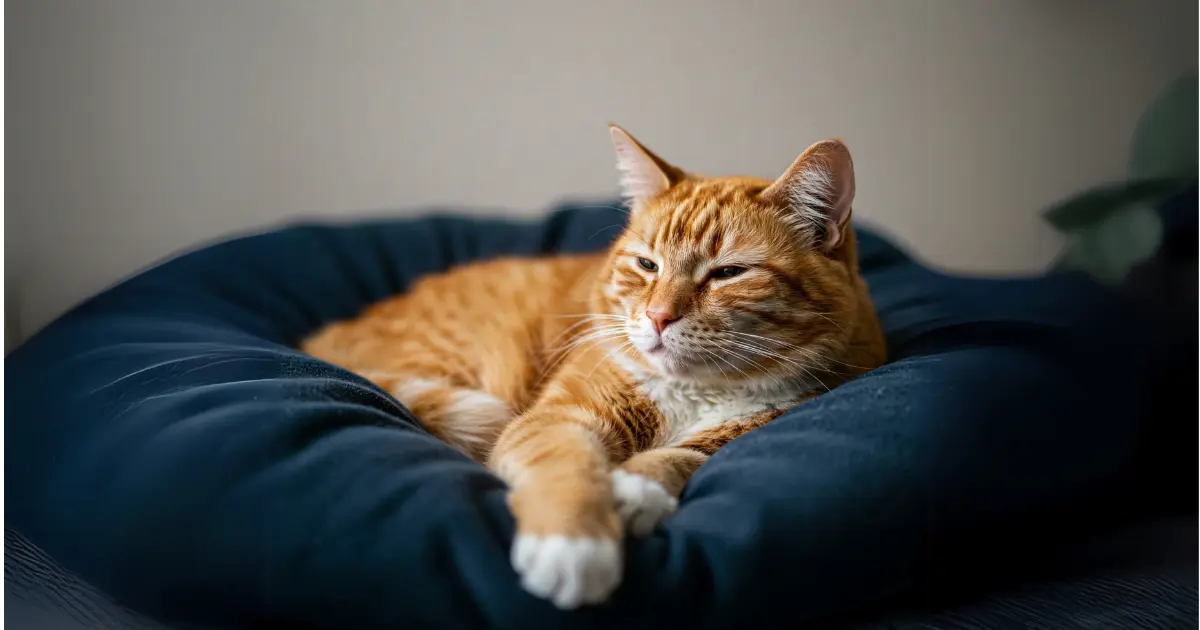Cat Foamy Urine: Health Concerns, Causes, and Solutions
Published: 4 Feb 2025
If you’ve recently noticed that your cat’s urine looks a little foamy or bubbly, you’re probably wondering what’s going on. Cat foamy urine can catch you off guard, and as pet parents, we always want to make sure our furry friends are healthy. I get it—it’s easy to feel concerned when something seems “off,” but don’t panic just yet! Foam in your cat’s urine doesn’t always point to something serious. Let’s break it down together and figure out what could be happening.

Table of Contents
What Does Foamy Cat Urine Mean?
Foamy urine might look strange at first. It’s usually clear or light yellow when everything’s normal, so when you see bubbles or foam, it definitely stands out. You might think something’s wrong, and that’s understandable. But in many cases, this is just your cat’s body responding to something simple—like dehydration or their food. It’s definitely worth paying attention to, though, so let’s take a deeper look at why this might happen.

Why Does This Happen? Possible Causes of Foamy Urine
Before jumping to conclusions, let’s discuss why your cat’s urine might look foamy. Some of these are easy to fix; others might need more attention from your vet. So, let’s break down what might be going on.
1. Dehydration: The Sneaky Culprit
Dehydration is one of the top reasons for foamy urine; it’s more common than you might think. Cats don’t always drink as much water as they should, especially if they eat dry food. When they’re not getting enough water, their urine becomes more concentrated, and that can create foam.
Why it Happens: When your cat’s body is low on fluids, their kidneys try to conserve water, which makes the urine more concentrated. The higher the concentration, the more likely it is to form foam.
Personal Story: One time, I noticed that my cat, Oliver, had foamy urine. At first, I freaked out—thinking there was something seriously wrong. Then I realized I hadn’t filled his water bowl in hours. Once I made sure he had fresh water and added more wet food to his diet, the foam disappeared. It was a simple hydration issue, but I learned my lesson!”
2. Urinary Tract Infections (UTIs): Not to Be Ignored
UTIs in cats can cause several issues, including foamy urine. If your cat is also straining to urinate, going to the litter box more frequently, or having accidents, these could be signs of a UTI. Inflammation from the infection can create foam in the urine.
Why it Happens: UTIs can cause white blood cells and bacteria to appear in the urine, leading to a bubbly appearance.
3. Kidney Disease: A Concern for Older Cats
If your cat is getting older, kidney disease could be the culprit behind foamy urine. As cats age, their kidneys can start to lose their ability to filter out waste properly. This means proteins can slip into the urine, causing it to foam.
Why it Happens: Healthy kidneys keep proteins in the bloodstream. When they don’t function well, the kidneys leak these proteins into the urine. This is a common problem in senior cats.
Tip: As your cat gets older, monitoring their kidney health is important. Regular vet check-ups, including [cat vaccinations], can help catch health issues early and keep your feline in tip-top shape!”
4. Diabetes: A Possible Cause of Foamy Urine
Believe it or not, diabetes can also cause foamy urine. In diabetic cats, high blood sugar can spill over into the urine. This excess glucose can make the urine thicker and bubbly. Along with foamy urine, you might notice your cat drinking more water than usual or losing weight.
Why it Happens: When a cat’s blood sugar gets too high, the kidneys filter out the extra glucose. The result is foamy urine and other symptoms like increased thirst.
5. Diet: It Might Be Time for a Change
What your cat eats can impact their urine, too. If your cat’s diet is too high in protein (especially if they’re eating a lot of dry food), it could lead to more concentrated urine. Check out tips on [cat nutrition] to ensure your cat’s diet supports its overall health. This can help prevent issues like foamy urine.
“What your cat eats can impact their urine, too. If your cat’s diet is too high in protein (especially if they’re eating a lot of dry food), it could lead to more concentrated urine. To ensure your cat’s diet is supporting their overall health, check out tips on [cat nutrition]. This can help prevent issues like foamy urine.”
Why it Happens: High-protein diets put extra strain on the kidneys, and without enough water, the urine becomes more concentrated and foamy.
Tip: “I found that switching my cat to wet food made a huge difference. Not only did it help them stay hydrated, but his litter box behavior improved, too. Cats love the moisture, which gives them extra hydration without effort!”
When Should You Worry? Signs to Watch Out For
Foamy urine isn’t always a cause for concern, but staying on top of your cat’s health is always good. If the foam doesn’t go away after a few days or other symptoms accompany it, it’s time to contact your vet.
Signs to Watch For:
- Straining or pain while urinating: If your cat seems to be having trouble or is uncomfortable using the litter box, that’s a red flag.
- Blood in the urine: This is a severe symptom that a vet should always check out.
- Excessive thirst or weight loss: These can be signs of something more serious, like diabetes or kidney issues.
- Frequent urination or accidents: If your cat’s urination habits change, it’s worth checking them out.

What You Can Do to Help Your Cat
If your cat’s urine is foamy, there are some things you can do at home to help out, but it’s important to keep an eye on things. Here are some tips for managing foamy urine.
1. Encourage More Water Intake
Hydration is so important! First, make sure your cat always has fresh water available. Cats can be stubborn about getting enough water, so the more you encourage them, the better. It might take a little extra effort, but your cat’s health will thank you!
- Provide fresh water regularly: Make sure their bowl is full and clean.
- Try a water fountain: Many cats prefer running water, and a fountain can help encourage them to drink more.
- Wet food: Wet food is an easy way to boost hydration.
Pro Tip: I added a little chicken broth (no salt) to my cat’s water bowl to get him to drink more. It took a bit of extra effort, but it worked!
2. Monitor Their Diet
If diet is the issue, Replacing your cat with a more balanced diet can help. Wet food is a great option to ensure your cat gets enough moisture, which can prevent concentrated urine.
Tip: “I always recommend wet food if your cat isn’t drinking enough water. It’s an easy way to improve hydration, and they usually love the taste.”
Regular grooming and health checks are key! Don’t forget to also stay on top of their oral health with regular [cat ear cleaning] and teeth brushing, which can improve their overall wellness.
3. Vet Visit: When in Doubt, Go to the Vet
If nothing seems to help or other concerning symptoms pop up, it’s best to schedule a vet visit. The vet can run some tests to confirm if there’s a health issue, like a UTI, kidney disease, or diabetes.

Conclusion: Pay Attention, But Don’t worry
Seeing foamy urine in your cat can be alarming, but it’s usually not something to worry about. Often, it can simply be a sign that your cat is dehydrated or having some dietary issues—things that can usually be sorted out fairly easily. However, if the foamy urine persists or you notice other signs of discomfort, you must contact your vet. Taking action sooner rather than later is always best for your cat’s health.
You do your part to keep your pet happy and healthy by staying alert and giving them extra care. They’ll thank you for it, even if it’s just with a little purr or headbutt! To help ensure your cat stays properly hydrated, check out these hydration tips for cats from PetMD.
FAQ
1. Can my cat’s stress cause foamy urine?
Stress can sometimes mess with your cat’s body, and while it’s less common, it could lead to changes in its urine. Most often, though, foamy urine happens when your cat is not drinking enough water.
2. Does foamy urine mean my cat has a urinary infection?
Not necessarily! While infections can cause foam, it’s just as likely that dehydration or an imbalanced diet is to blame. You’ll need a vet to tell for sure.
3. Should I be worried if my cat’s urine foams only once in a while?
If it’s just an occasional thing and your cat is acting normal otherwise, it’s usually not something to stress over. But if it keeps happening or other symptoms pop up, you might want to have them checked out.
4. Can dry food cause foamy urine?
Yes, dry food can sometimes lead to dehydration, which makes urine more concentrated and foamy. Switching to wet food could help hydrate your cat and reduce the foam.
5. Could foamy urine mean my cat is losing too much protein?
If the foam doesn’t go away and your cat is getting older, it might be a sign that its kidneys aren’t working correctly. A vet visit can help determine if the protein is leaking into the urine.
6. If my cat is drinking a lot more water than usual, could that be related to foamy urine?
Excessive thirst could indicate conditions like diabetes, which can cause foamy urine. If you notice your cat drinking more than usual along with foam, it’s time for a vet visit.
7. Can a urinary tract infection cause foamy urine in cats?
Yes, it can! If your cat’s urine is foamy, they’re having trouble peeing, or you see blood, it’s a good sign that there might be a UTI that needs treatment.
8. How can I tell if kidney disease is causing my cat’s foamy urine?
If your cat is older, losing weight, or drinking excessively, it could indicate kidney trouble. A vet can perform tests to determine if kidney disease is the cause of the foamy urine.
9. How can I tell if my cat is dehydrated aside from foamy urine?
Signs like lethargy, dry gums, or skin that doesn’t spring back when you gently pinch it are all clues. Keeping fresh water available and offering wet food can help prevent dehydration.
10. If I switch my cat to wet food, will the foamy urine disappear?
It could help! Wet food adds moisture to their diet, preventing concentrated, foamy urine. But if it continues, there might be another health issue at play.

- Be Respectful
- Stay Relevant
- Stay Positive
- True Feedback
- Encourage Discussion
- Avoid Spamming
- No Fake News
- Don't Copy-Paste
- No Personal Attacks



- Be Respectful
- Stay Relevant
- Stay Positive
- True Feedback
- Encourage Discussion
- Avoid Spamming
- No Fake News
- Don't Copy-Paste
- No Personal Attacks





